
ELECTRONIC SIGNATURE SOFTWARE
Capture effortless eSignatures with Conga Sign
Transform your entire agreement process with a compliant, secure, and industry-leading eSignature solution—available wherever and whenever you need
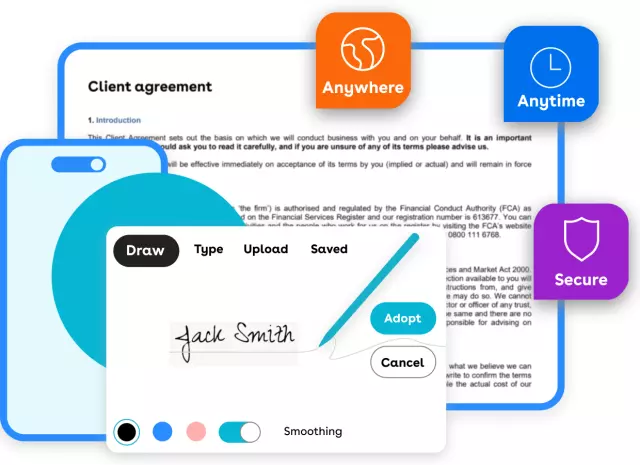
Tens of millions of signatures captured annually
Redefine what’s possible with eSignature software
How do I keep my eSignatures legally bound?
Use a solution that’s globally compliant. Conga Sign provides ESIGN, UETA, and eIDAS-compliant eSigns.

How do I ensure the signing process is secure?
Secure your documents with authentication, audit trails, and the ability to tamper seal them.

How can I embed eSignature into my existing processes and workflows?
Conga can embed directly into your portals, applications, and websites, increasing conversion rates.

How do I custom brand the signing experience?
Conga Sign is the only eSign provider allowing you to fully white label your signing experience, with full control.

Make every signature count with Conga Sign
Capture agreements faster
Streamline your workflow to close more deals.
Custom integration with any CRM, ERP, or system of record allows you to automate routine manual tasks like routing, shortening your time to close critical deals.
Accelerate approvals.
Improve your time-to-value and approval rates with faster electronic signatures.
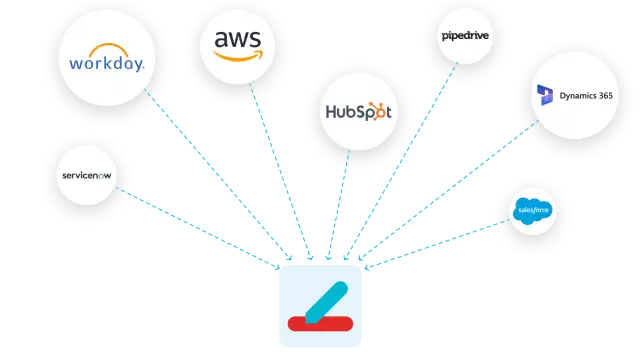
Establish an unbreakable audit trail
Authenticate the signer’s identity.
Conga’s eSignature solution offers multiple authentication options, including email, SMS, ID verification, and question and answer.
Ensure compliance.
Protect against disputes and fraud with a verifiable, tamper-proof record. Easily access transaction details for compliance. The audit trail is permanently embedded within the document for one-click verification.
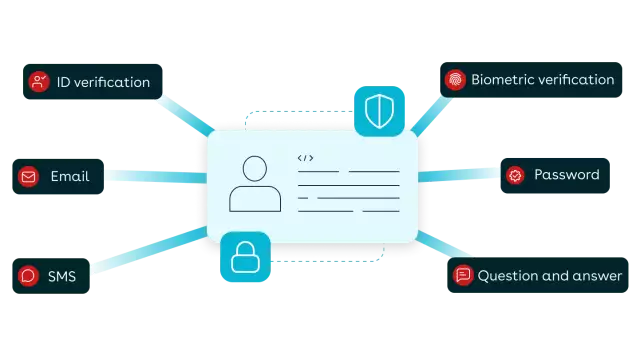
Fulfill global requirements
Operate internationally.
Meet data residency requirements with global data centers. Conga Sign's global infrastructure allows you to store and process data in regions that meet your specific compliance needs.
Adhere to global security standards.
Capture ESIGN, UETA, and eIDAS-compliant eSigns. Conga is committed to data security and is compliant with rigorous international standards, such as ISO/IEC 27001, ISO/IEC 27017, ISO/IEC 27018, SOC 2 Type II, and FedRAMP.
Meet regulatory requirements.
Adhere to industry standards and regulations like GDPR and HIPAA. Conga Sign's robust audit trail ensures you can easily provide the necessary documentation to auditors and regulators.
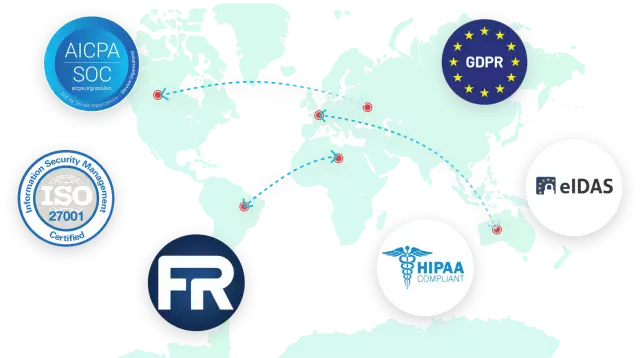
Process every signature type
Accommodate diverse requirements.
Allow signing from anywhere and anytime, facilitating transactions for remote or global teams. Adhere to global legal standards (SES, AES, QES), making eSignatures as legally binding as handwritten ones.
Support various agreement types.
Process any type of business document, including contracts, proposals, forms, and more. Conga Sign is versatile and can handle a wide range of agreement types, ensuring that you can capture all of your business transactions.
Lock in trust with digital signatures.
Strengthen eSignatures with cryptographic technology that guarantees document integrity and signer identity. Detect tampering efforts and provide added security for sensitive documents. Digital signatures add an extra layer of confidence, making sure the document stays exactly as it was meant to be.
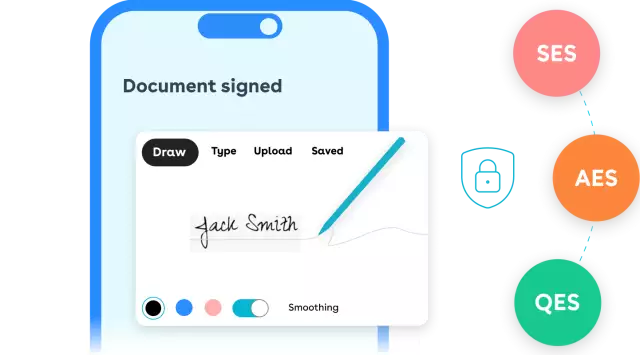
Leverage flexible deployment options
Integrate into your existing infrastructure.
Use Conga Sign as an out-of-the-box solution or connect with your existing systems, such as CRM, ERP, or document management platforms.
Scale with ease:
Manage workloads of any size, allowing for seamless expansion as your requirements grow.
Configure to your needs.
Tailor workflows and processes to match your specific business rules. Create custom approval workflows, set reminders, and define document routing rules.
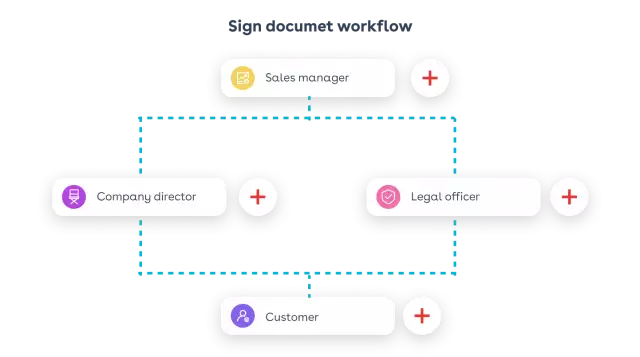
Maintain complete brand control
Secure your customers.
Lower the risk of spamming and phishing by including your branding on critical documents, improving the customer experience.
Foster trust and engagement.
Customize the look and feel of the eSignature interface to match your branding guidelines. This helps build trust and reinforce your brand identity. Plus, keeping the focus on your brand drives a high completion rate.
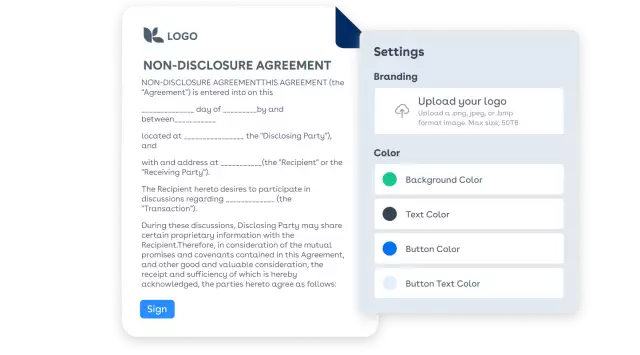
Complete your revenue lifecycle with the Conga Advantage Platform
More than just eSignatures—here’s how Conga Revenue Lifecycle Management drives top-line revenue for your business.
Generate critical business documents
Automatically generate error-free, on-brand documents using the best document creation software—anywhere, anytime
Collect signatures on quotes and proposals
Collect eSignatures and approvals on your proposals and quotes directly from the Conga CPQ platform, Revenue & Commerce.
Send contracts for eSignature
Create contracts from pre-built templates and send them for eSign, all from the same platform, with accurate and up-to-date data
Revenue growth that speaks for itself
Take our customers’ word for it. They tell us daily what a major improvement Conga Sign is making for their teams.
Increase in signature velocity
In annual savings
Saved in signature setup
Ready to take your electronic signatures to the next level?
Sometimes seeing is believing. We’re happy to tell you all about our electronic signature software and how it works. Request a demo for Conga Sign and see the power—and simplicity—of our eSignature solution.
Frequently asked questions
-
What is an electronic signature?
An electronic signature is a digital method of document signing, replacing traditional handwritten signatures. However, the eSignature software must meet the regulatory criteria defined by the governing bodies to be accepted.
-
Are eSignatures legal?
eSignatures are legal in many jurisdictions around the world, supported by laws and regulations that recognize their validity. Conga Sign is compliant with the necessary regulations, such as ESIGN, UETA, and eIDAS.
-
What is the best electronic signature software?
While there are plenty of eSignature tools available in the market, Conga Sign is the best electronic signature software based on its functionalities, flexibility, customer reviews, ability to scale, and more. With Conga Sign, you get the option to use our entire Revenue Lifecycle Management Platform, which solves almost all of your business operations problems, from CPQ to contract lifecycle management.
-
Is Conga Sign a legally binding eSignature solution?
Yes, Conga Sign is a fully secure and compliant product providing ESIGN, UETA, and eIDAS-compliant eSignatures. You can view comprehensive audit trail reports to demonstrate your compliance. The platform shows the signees, order of signatures, time of signing, and location with strong identity assurance.
-
What types of content can I sign with Conga Sign?
With Conga Sign, you can sign a wide variety of content types, including sales contracts, agreements, forms, and any other document that requires an authorized signature, provided it’s in a supported file format such as PDF.
-
What CRMs does Conga Sign work with?
Conga Sign works alongside and integrates with any CRM, ERP, or system of record. This flexibility allows our electronic signature software to be the sole vendor across your entire business.
-
Does Conga Sign work with Salesforce CRM?
Yes, Conga Sign has a connector that’s designed to work with Salesforce CRM, enabling users to create, send, and manage eSignature processes within Salesforce. And you aren’t just limited to the Salesforce ecosystem. With Conga Sign’s API-first approach, you can embed the eSign solution in any CRM, ERP, or system of record of your choice.
-
Does the end user need Conga to use your product?
No, the end users, or the document recipients, don’t necessarily need Conga to use the product. They can sign documents without requiring a Conga subscription, though creating and sending documents for signature would typically require one.
-
What's the difference between Conga Sign and DocuSign?
The main differences between Conga Sign and DocuSign are:
- Compatibility with document generation solutions: Conga Sign’s pairing with Conga Composer allows you to scale and be flexible when creating your document for signatures.
- White-labeling capabilities: You can personalize your documents to fully brand your signing experience, including removing Conga’s logo from loading screens, email domains, vanity URLs, and more. The same isn’t possible with DocuSign.
- Pricing and support: Conga Sign is at least 30% cheaper than DocuSign. And Conga offers superior support than any of its competitors.
-
Does Conga Sign have an API?
Yes, Conga Sign is built with an API-first approach, allowing developers to integrate eSignature capabilities into their own applications, enabling custom workflows and processes around digital signatures.
-
How is the Conga Sign API different from the standard Conga Sign offering?
Conga Sign API is an extension of our Conga Sign web application that offers more flexibility and customization options than the traditional web app. The API facilitates deeper integration and automation within external systems.




















